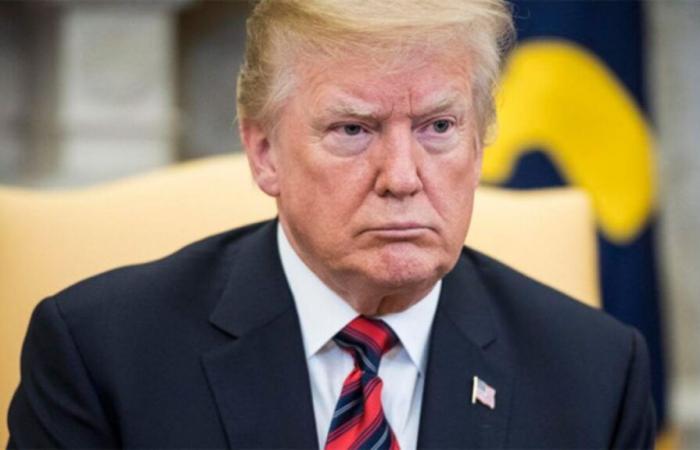“Ready to work together.” French President Emmanuel Macron has just sent his congratulations on X to the Republican candidate. In terms of the technology sector, how will the new president, re-elected after a failure – a first – act in the field of technology?
During his campaign, Donald Trump pledged to free the US technology industry from overregulation, giving innovators the freedom to create and compete.
He also suggested that the Biden administration's attempts to mitigate the technology's downsides have only worked in China's favor. In his farewell speech four years ago, Mr. Trump said that Mr. Biden was “afraid” of China and boasted that he had “removed more job-killing regulations than any “no other administration has ever done this before.”
AI governance, what Donald Trump will do
It is likely that Donald Trump's administration will fundamentally change the Biden administration's AI regulations. For him, these regulations put American companies at a disadvantage compared to China.
“We will repeal Joe Biden's dangerous executive order that hinders AI innovation and imposes radical left-wing ideas on the development of this technology,” reads Mr. Trump's manifesto. “Instead, Republicans support the development of AI based on free speech and human flourishing.”
“Mr. Trump sees the underlying problem of a 'woke' technology industry, absorbed in censorship of conservative speech and ideas,” explains a technology analyst. “Despite the fact that Biden's AI executive order doesn't really address content moderation, Trump has announced that he would repeal it on day one if re-elected.” This therefore suggests a laissez-faire approach with less government oversight.
How are the big tech companies positioning themselves against Donald Trump?
Industry leaders reached out to Donald Trump during his campaign, seeking reconciliation and building relationships.
Companies like Apple, Google and Amazon have engaged in preemptive diplomacy, with their CEOs initiating conversations with the Republican candidate.
This approach suggests a recognition of Trump's influence by the ecosystem. Especially since Elon Musk – who according to some is playing for his survival with this rally – ran Donald Trump's campaign.
Donald Trump wants to relax regulations on cryptocurrencies
Donald Trump, who has his own crypto currency and has already launched the concept of a “national bitcoin reserve”, advocates a flexible approach to digital assets. He argues that regulations that are too strict risk driving innovation abroad.
In a speech last year, he accused the Biden administration of waging a war on bitcoin.
He promised to help the sector. Although not very detailed, his proposals on the matter seem to indicate a non-interventionist position towards the sector, with few guarantees for consumers or the financial system.
Donald Trump's vagueness on cybersecurity
It is possible that the second Trump administration will take a more forceful approach to cybersecurity regulation.
How ? For example, by requiring companies in critical sectors to report violations to the government or by setting up a fund dedicated to cyber resilience.
However, some experts worry that his “America First” rhetoric and strained relations with allies could hamper international cooperation on digital threats.
Rebuilding the semiconductor supply chain
The shortages caused by the pandemic have thrust a long-neglected sector into the spotlight: semiconductors.
The Biden-Harris CHIPS and Science Act represented a significant foray by the US administration into industrial policy. The idea? Reshore semiconductor manufacturing. But also to reaffirm the leadership of the United States in strategic technologies.
Two years later, its success in catalyzing domestic investment is widely considered a success by economic standards.
In a rare show of bipartisanship, Congress last year passed the CHIPS Act, which provides more than $50 billion in subsidies and tax credits to boost U.S. chip manufacturing and reduce reliance on foreign suppliers. The Biden administration has touted the law as a signature achievement that will create jobs, strengthen national security and help the United States compete with China.
Donald Trump has pledged to continue implementing this law. However, some of the funded projects have recently suffered delays and cost overruns, raising questions about the effectiveness of the program.
And what about antitrust measures on tech?
As tech giants amass power that rivals that of nation states, antitrust has once again become a major point of contention. The Biden administration has taken an aggressive stance, filing high-profile lawsuits.
Trump's record and rhetoric paint a more ambiguous picture.
“Trump has talked a lot about Silicon Valley giants in the past, saying that these companies pose a greater threat to the US elections than Russia, due to what he calls their anti-conservative bias,” Bartoletti said. , privacy expert at Wipro.
However, she emphasizes that the final impact often comes from specific personal choices. “It remains to be seen whether he will appoint strong leaders to key positions, such as the FTC.”
The United States also faces the challenge of navigating an increasingly complex international regulatory landscape, particularly when it comes to American technology giants. The European Union has been at the forefront of regulatory pressure on big tech companies, with new laws targeting US tech companies.
The EU's approach, which focuses on issues of competition and market dominance, has resulted in sizable fines for companies such as Google, Apple and Meta. This EU strategy has an impact on the activities of these companies abroad and will put pressure on the President of the United States to react.






